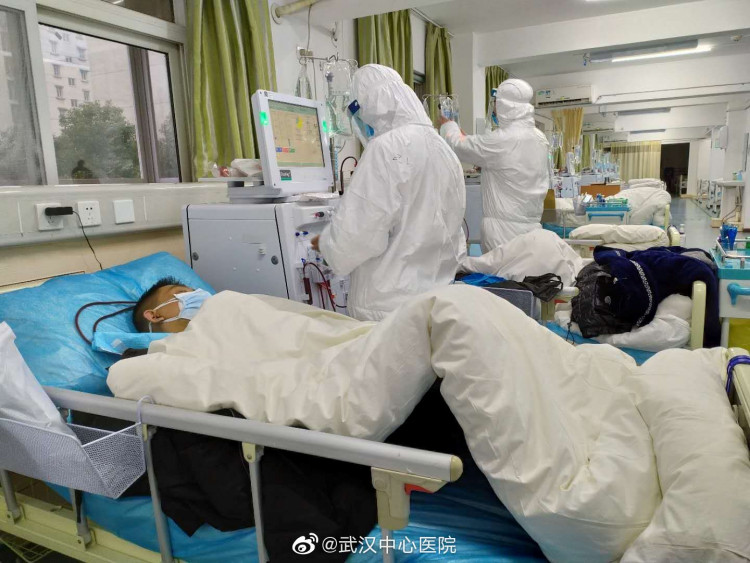A dismaying medical study suggests hospitals and healthcare facilities in Wuhan treating patients afflicted by the highly-contagious Novel coronavirus (2019-nCoV) might also be a chief cause of the virus' rapid spread.
It said the coronavirus' escalation is being abetted by so-called "nosocomial transmissions," which basically means a new virus such as 2019-nCoV spreads by sickening non-infected patients in a hospital. Nosocomial transmissions have long been known to be factors aggravating a virus outbreak or epidemic. Nosocomial transmission was a major source of spread for the MERS (or camel flu) and SARS CoV outbreaks in 2012 and 2003, respectively.
The study published Friday in the medical journal, JAMA, found 41% of the first 138 patients diagnosed at one hospital in Wuhan with 2019-nCoV were likely victims of nosocomial transmissions.
This disturbing finding means nearly half of the initial infections in this hospital appear to have been spread within the hospital itself, said Dr. Tom Frieden, the former director of the U.S. Centers for Disease Control and Prevention (CDC) and currently president and CEO of Resolve to Save Lives.
He also said the spread of 2019-nCoV doesn't appear to have been the result of a "super-spreader event," in which a single patient transmits infection to many other people.
"So, like SARS and MERS -- other coronaviruses -- before it, the Wuhan coronavirus is spreading in hospitals," said Dr. Frieden.
He said doctors and health workers are particularly at risk because the virus is spreading by nosocimial transmission. What doctors urgently need is more information about just how infectious the coronavirus is.
"The virus might well be impossible to contain -- just as the common cold and influenza can't be stopped, but the health and societal impacts can be blunted," according to Dr. Frieden.
He praised China for its "extraordinary efforts to stop the spread of the virus." He is also grateful China is working hard to keep-up with the testing, care and social impacts of the virus. Dr. Frieden said it's good to see crucial epidemiological information starting to emerge.
Even if these efforts turn out to be unsuccessful, however, they might slow the coronavirus' spread and improve China and the world's ability to limit the harm the virus causes.
"We must protect health care workers and others who care for sick people," urges Dr. Frieden. "This is done through a hierarchy of controls: source, engineering, administrative and personal."
Dr. Frieden believes the next few days and weeks will determine if sustained coronavirus transmission begins in other countries. Unfortunately, however, this seems likely, he warned.






